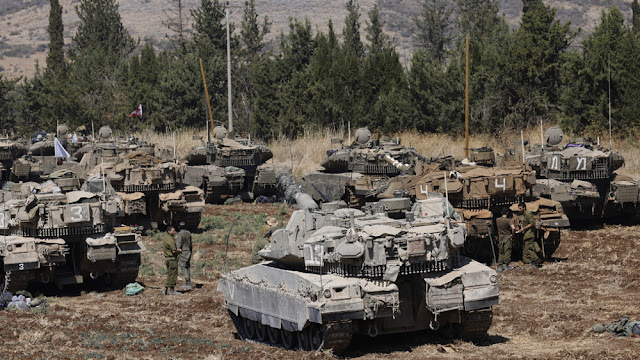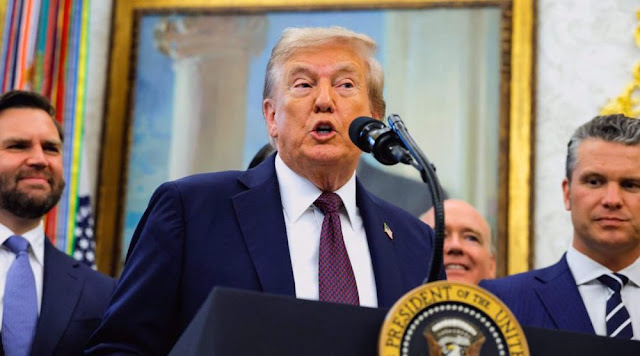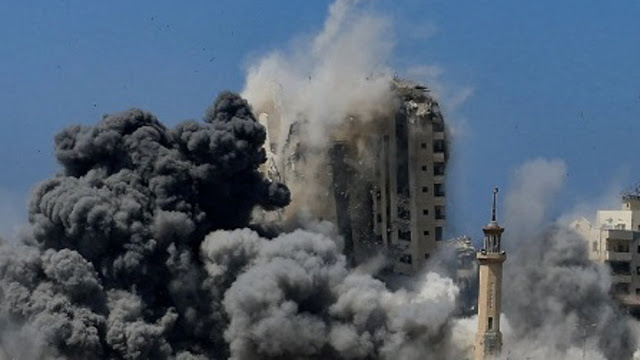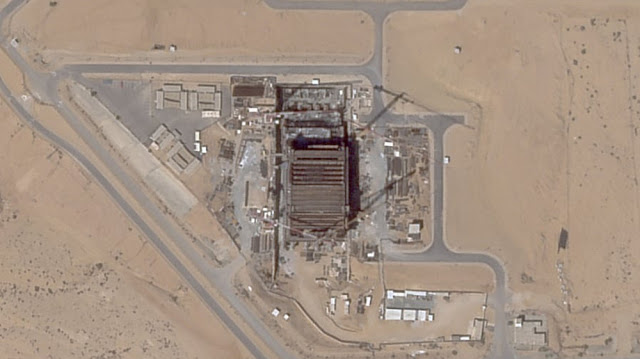On September 5, 2025, reports emerged that the United States has issued a severe warning to Lebanon, threatening a potential new wave of Israeli military action if the Lebanese government fails to disarm Hezbollah, a powerful resistance movement deeply embedded in the country’s political and military landscape. This ultimatum comes amid heightened tensions, as Israel continues to conduct airstrikes in southern Lebanon, flagrantly violating a ceasefire agreement established in late 2024. The U.S. has reportedly tied any negotiations regarding Israel’s withdrawal from Lebanese territory to Hezbollah’s disarmament, a demand that has sparked outrage among Lebanese leaders and citizens who view the group as a critical bulwark against Israeli aggression.
This development places Lebanon at a precarious crossroads, caught between external pressures from the U.S. and Israel and internal divisions over Hezbollah’s role. The resistance movement, which has long positioned itself as a defender of Lebanese sovereignty, has rejected calls to lay down its arms, arguing that its military capabilities are essential to countering Israel’s repeated violations of Lebanese territory. The situation is further complicated by Lebanon’s ongoing economic and political crises, which have weakened the government’s ability to navigate these challenges.
This article provides an in-depth exploration of the U.S. threat, the historical and geopolitical context of Hezbollah’s role in Lebanon, the implications of Israel’s ceasefire violations, and the potential consequences of disarming Hezbollah. It also examines the perspectives of various stakeholders, including the Lebanese government, Hezbollah, regional actors, and international observers, while critically analyzing the motives behind U.S. and Israeli policies. By delving into these dimensions, we aim to offer a comprehensive understanding of the crisis and its far-reaching implications for Lebanon and the broader West Asian region.
Historical Context: The Rise of Hezbollah
To fully grasp the significance of the U.S. demand to disarm Hezbollah, it is necessary to understand the movement’s origins and its evolution into a central player in Lebanese politics and society. Hezbollah, or the “Party of God,” was founded in the early 1980s during Lebanon’s civil war (1975–1990), a period of intense sectarian conflict and foreign intervention. The catalyst for its formation was Israel’s 1982 invasion of Lebanon, launched under the pretext of expelling the Palestine Liberation Organization (PLO) from the country. The invasion caused widespread devastation, particularly in southern Lebanon, a predominantly Shia region, and resulted in thousands of civilian deaths. Hezbollah emerged as a resistance movement to counter Israeli occupation, drawing support from Lebanon’s Shia community and receiving military and financial backing from Iran.
Initially a loosely organized militia, Hezbollah grew into a formidable force, combining military prowess with a robust political and social welfare apparatus. By the 1990s, it had established itself as a key player in Lebanese politics, securing seats in parliament and building an extensive network of schools, hospitals, and charities that provided essential services to underserved communities. Its military wing gained prominence for its role in resisting Israel’s occupation of southern Lebanon, which culminated in Israel’s withdrawal in 2000 after 18 years. This victory cemented Hezbollah’s reputation as a symbol of resistance against foreign domination, earning it widespread admiration among Lebanese and across the Arab world.
The 2006 Lebanon War further solidified Hezbollah’s standing. Despite Israel’s overwhelming military superiority, Hezbollah’s guerrilla tactics and resilience enabled it to withstand a 34-day Israeli assault, which killed over 1,200 Lebanese, mostly civilians, and displaced hundreds of thousands. The war ended with a UN-brokered ceasefire, but Hezbollah’s ability to hold its ground enhanced its legitimacy as a defender of Lebanese sovereignty. Today, Hezbollah’s arsenal, which reportedly includes precision-guided missiles, is seen by its supporters as a critical deterrent against Israel’s frequent violations of Lebanese airspace and territory.
However, Hezbollah’s armed presence has also been a source of contention. Critics, including the U.S. and Israel, label the group a “terrorist organization” and argue that its weapons undermine the authority of the Lebanese state. This tension lies at the heart of the current crisis, as the U.S. seeks to strip Hezbollah of its military capabilities, while the movement and its supporters view its arsenal as indispensable for Lebanon’s defense.
The U.S. Ultimatum and Israel’s Ceasefire Violations
The U.S. demand for Hezbollah’s disarmament is framed as a prerequisite for negotiations over Israel’s withdrawal from Lebanese territory, particularly areas in southern Lebanon that Israel has occupied or targeted. This ultimatum was reportedly communicated through high-level diplomatic channels, with U.S. officials warning that failure to comply could lead to a “new Israeli war” against Lebanon. The threat is particularly alarming given Israel’s ongoing military actions, which have persisted despite a ceasefire agreement established on November 26, 2024, to de-escalate hostilities between Israel and Hezbollah.
The ceasefire was intended to halt cross-border skirmishes that escalated following Israel’s military operations in Gaza, which began in October 2023 and have resulted in tens of thousands of Palestinian deaths. However, Israel’s continued airstrikes in southern Lebanon have undermined the agreement, targeting civilian areas and infrastructure and causing significant casualties and displacement. These attacks have reinforced Hezbollah’s argument that its military capabilities are necessary to deter further Israeli aggression, as the Lebanese Army lacks the resources to confront Israel independently.
The U.S. threat of a new war aligns with its long-standing support for Israel, which includes billions of dollars in annual military aid and unwavering diplomatic backing. By conditioning negotiations on Hezbollah’s disarmament, the U.S. is effectively endorsing Israel’s violations of the ceasefire and signaling its willingness to escalate the conflict. This stance has drawn criticism from observers who argue that it undermines Lebanon’s sovereignty and risks plunging the region into further instability.
Hezbollah’s Defiance and Lebanese Perspectives
Hezbollah has categorically rejected the U.S. demand to disarm, asserting that its weapons are an internal matter and essential for Lebanon’s defense. In a public address, a senior Hezbollah leader condemned the Lebanese government’s consideration of the U.S. proposal, warning that disarming the movement would leave Lebanon vulnerable to Israeli aggression and facilitate attacks on resistance fighters and their communities. The leader emphasized Hezbollah’s role in defending Lebanese sovereignty and supporting the Palestinian cause, framing the group’s resistance as part of a broader struggle against U.S. and Israeli hegemony in the region.
Public sentiment in Lebanon appears to align closely with Hezbollah’s position. Many Lebanese, particularly in southern Lebanon, view the group as a necessary counterweight to Israel’s military dominance. The memory of Israel’s occupations and invasions, coupled with its ongoing attacks, has fostered widespread distrust of both Israel and the U.S. Polls conducted in recent years suggest that a majority of Lebanese doubt the Lebanese Army’s ability to confront Israel without Hezbollah’s support, and many question the efficacy of diplomacy in deterring Israeli aggression. This skepticism is compounded by Lebanon’s economic and political crises, which have eroded confidence in the government’s ability to protect national interests.
The Lebanese government, caught between U.S. pressure and domestic realities, faces a delicate balancing act. While some factions within the government may see engagement with the U.S. as a path to international support, others view compliance with the disarmament demand as a betrayal of Lebanon’s sovereignty. Hezbollah’s significant influence in parliament and its grassroots support further complicate the government’s ability to act unilaterally, raising the risk of internal strife if the issue is mishandled.
Geopolitical Motives: U.S. and Israeli Interests
The U.S. ultimatum must be understood within the broader context of American and Israeli strategic objectives in West Asia. The U.S. has long viewed Hezbollah as a threat to its regional interests, primarily due to the group’s alignment with Iran and its support for Palestinian resistance. Since designating Hezbollah a “foreign terrorist organization” in 1997, the U.S. has imposed sanctions and diplomatic pressure to isolate the group and weaken its regional influence. By demanding Hezbollah’s disarmament, the U.S. aims to undermine Iran’s network of allies, known as the “Axis of Resistance,” which includes Hezbollah, Syria, and various Palestinian factions.
Israel, meanwhile, sees Hezbollah as its most significant regional adversary. The group’s advanced weaponry and proximity to Israel’s northern border pose a direct challenge to Israeli military dominance. Israel’s repeated airstrikes in Lebanon, even during a ceasefire, reflect its determination to degrade Hezbollah’s capabilities and assert control over its northern neighbor. The U.S. ultimatum aligns with Israel’s goal of neutralizing Hezbollah, as a disarmed Hezbollah would leave Lebanon defenseless against Israeli incursions and diminish the group’s ability to support Palestinian resistance in Gaza.
The ongoing war in Gaza, which has been widely criticized as a humanitarian catastrophe, has heightened regional tensions and bolstered support for Hezbollah. Israel’s military operations, which have killed tens of thousands of Palestinians and displaced millions, have fueled outrage across the Arab and Muslim world. Hezbollah’s leadership has condemned Israel’s actions and reaffirmed its solidarity with the Palestinian cause, framing its resistance as a moral imperative. The group’s alignment with Iran, which has provided critical support to Palestinian factions, further underscores its role in the broader regional struggle.
Lebanon’s Domestic Challenges
Lebanon’s ability to respond to U.S. and Israeli pressure is severely constrained by its internal crises. Since 2019, the country has been grappling with an economic collapse marked by currency devaluation, hyperinflation, and widespread poverty. Over half the population now lives below the poverty line, and basic services like electricity and healthcare are increasingly scarce. The 2020 Beirut port explosion, which killed over 200 people and caused billions of dollars in damage, exposed the government’s corruption and incompetence, further eroding public trust.
The Lebanese government’s consideration of the U.S. disarmament demand has sparked controversy, with critics arguing that it reflects subservience to foreign powers. Hezbollah’s political wing, a significant force in parliament, has warned that disarming the group would undermine Lebanon’s sovereignty and embolden Israel. The government’s fragility, combined with its inability to address Israel’s ceasefire violations or support communities affected by airstrikes, has further weakened its legitimacy.
The Lebanese Army, while a respected institution, lacks the resources and capabilities to replace Hezbollah as a deterrent against Israel. Chronic underfunding and logistical challenges limit the army’s ability to confront external threats, reinforcing public reliance on Hezbollah’s military wing. This dynamic is particularly pronounced in southern Lebanon, where residents have endured decades of Israeli aggression and view Hezbollah as their primary defender.
Regional and International Implications
The U.S. threat and Israel’s ongoing attacks have elicited strong reactions from regional and international actors, highlighting the crisis’s broader implications. Iran, a key supporter of Hezbollah, has condemned the U.S. ultimatum as an attempt to weaken resistance movements and advance American-Israeli hegemony. Iranian officials have reiterated their commitment to Hezbollah, emphasizing the group’s role in countering Israeli aggression and supporting Palestinian liberation.
Other regional actors, including Yemen’s Ansarullah movement and various Palestinian factions, have expressed solidarity with Hezbollah, warning of coordinated resistance if tensions escalate. This reflects the interconnected nature of resistance movements in West Asia, which view their struggles as part of a unified front against foreign domination. The potential for escalation underscores the delicate balance of power in the region, where actions against one group could trigger a broader conflict.
Internationally, the U.S. threat has been criticized as a violation of Lebanon’s sovereignty and a reckless escalation of tensions. The United Nations, through its peacekeeping mission in southern Lebanon (UNIFIL), has called for all parties to respect the ceasefire and pursue dialogue. However, the U.S.’s explicit support for Israel’s position has raised doubts about the prospects for meaningful diplomacy, as it appears to prioritize Israeli interests over regional stability.
Consequences of Disarming Hezbollah
The demand to disarm Hezbollah carries profound implications for Lebanon’s stability and the regional balance of power. Without its military capabilities, Hezbollah would be unable to deter Israeli aggression, leaving Lebanon vulnerable to further incursions. The Lebanese Army’s limited capacity makes it unlikely to fill this gap, potentially emboldening Israel to pursue more aggressive policies, including territorial expansion similar to its actions in the occupied West Bank.
Internally, disarming Hezbollah could exacerbate Lebanon’s divisions. The group’s significant support base, particularly among the Shia community, views its weapons as a safeguard against foreign aggression. Forcing Hezbollah to disarm could lead to clashes between the group and the Lebanese Army, plunging the country into deeper instability. Such a scenario would further weaken the government and exacerbate the economic crisis, as resources are diverted to internal conflict.
Regionally, the disarmament of Hezbollah would weaken the Axis of Resistance, diminishing the ability of Iran, Syria, and Palestinian factions to counter U.S. and Israeli influence. This would align with the broader American-Israeli agenda of reshaping West Asia to secure their dominance. However, it could also provoke a backlash from resistance movements, potentially escalating tensions and drawing in other regional actors.
Conclusion
The U.S. threat to Lebanon, warning of a “new Israeli war” if Hezbollah does not disarm, represents a dangerous escalation in an already volatile region. By tying Hezbollah’s disarmament to negotiations over Israel’s withdrawal, the U.S. is effectively undermining Lebanon’s sovereignty and endorsing Israel’s ceasefire violations. Hezbollah’s refusal to disarm reflects its commitment to defending Lebanon and supporting the Palestinian cause, a stance that resonates with many Lebanese who view the group as a necessary deterrent against Israeli aggression.
Lebanon’s internal crises, including its economic collapse and political dysfunction, limit its ability to navigate this crisis independently. The government’s consideration of the U.S. demand risks deepening internal divisions and undermining national unity. Meanwhile, Israel’s ongoing airstrikes and the U.S.’s unwavering support highlight the challenges of achieving a just resolution through diplomacy.
The international community must prioritize Lebanon’s sovereignty and advocate for de-escalation over coercive ultimatums. Addressing the root causes of the conflict, including Israel’s occupation of Palestinian and Lebanese territories and the U.S.’s complicity, is essential for lasting peace. Without a commitment to justice and dialogue, the region risks further instability, with devastating consequences for Lebanon and its people.





